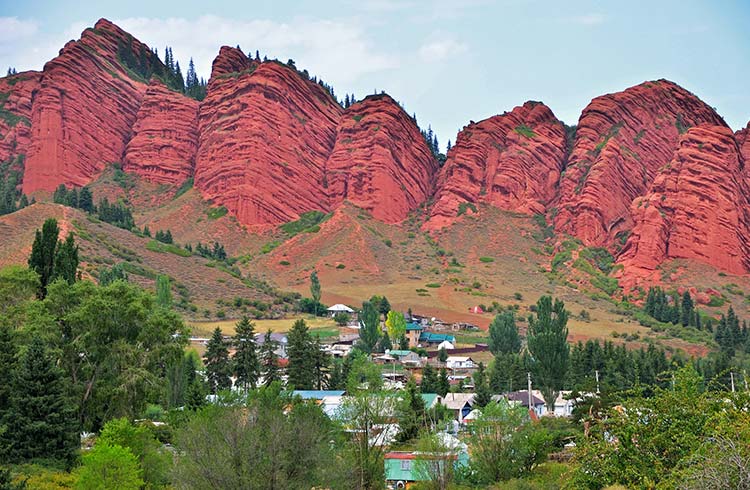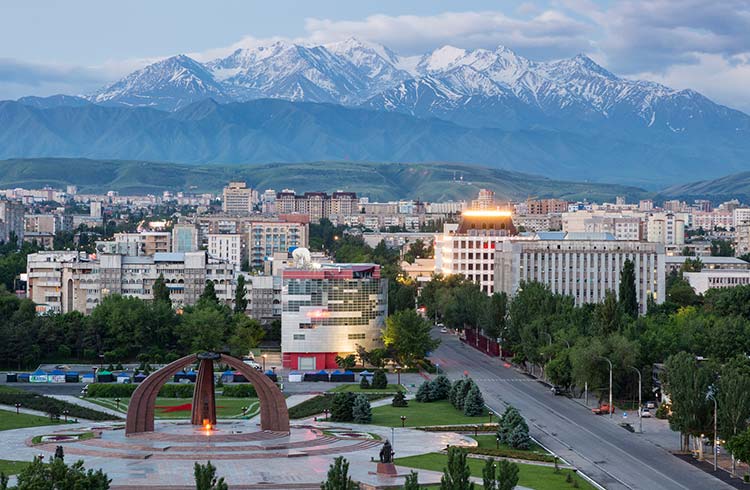How to Stay Healthy While Traveling Around Kyrgyzstan
Diseases, natural hazards and limited medical facilities make Kyrgyzstan the type of destination you don't want to get sick or injured.
 Photo © Getty Images/Jason Jones Travel Photography
Photo © Getty Images/Jason Jones Travel Photography
Diseases and health concerns in Kyrgyzstan
There are a few diseases that can be found in Kyrgyzstan: malaria, brucellosis, tuberculosis, meningitis, hepatitis A and rabies. Malaria is endemic in the western and southern areas of the county.
Some insect-borne illness to watch out for include tick-borne encephalitis and leishmaniasis, which comes from sand fly bites. Naturally, hiking or traveling in forests, especially from the spring to the autumn months, will up your risk of these conditions.
You can minimize the risk of being bitten by insects by applying a DEET based repellent and covering up with long sleeved clothing.
Make sure you're up to date with all routine vaccinations such as tetanus, typhoid, diptheria and polio. You may consider being vaccinated against: hepatitis A, hepatitis B and rabies – speak to your travel doctor to get the best advice for you.
Outbreaks of anthrax have been reported in the southwestern region of Kyrgyzstan, and is likely spread by animals who were never inoculated against it.
Smoking is banned in public places.
Medical treatment in Kyrgyzstan
Medical facilities are limited in Kyrgyzstan, and some medicines that are easier to get in other countries will be difficult to come by here. You may need to be evacuated via air ambulance for serious illnesses or injuries. Should you need medical treatment while in Kyrgyzstan, you will need to pay cash up front.
It is also advised to bring medications with you, as they might not be easy to find or impossible to get when you are traveling there.
Some medications such as codeine may be restricted, so bring copies of your prescription plus a letter from your doctor (ideally translated into Russian). Declare all medications upon arrival.
Water and food safety
The water in Kyrgyzstan is generally safe to drink, there is still a high metal content according to the US Center for Disease Control and there have been reports of the water treatment plant going a bit crazy with the chemicals, so it is best to drink filtered water or boiled water if you end up stuck for options.
If you are traveling to rural areas, purify your water unless locals advise you of which mountain streams or springs are safe to drink from.
To minimize the risk of contracting traveler's diarrhea or food poisoning, eat only well cooked meat, fish and vegetables. The array of Kyrgyz delicacies can pose a challenge for vegetarians and vegans, so bring supplements and vitamins with you.
Natural hazards in Kyrgyzstan
Anyone venturing into the mountains should be aware of risks from landslides and avalanches. In April 2017, 24 people were killed by a landslide in southwestern Kyrgyzstan. People can easily get trapped and entire villages are sometimes left cut off from help for weeks, as their extreme isolation and situation on rugged terrain makes it hard for rescue services to get to them. Always seek out official warnings and follow official safety advice.
Earthquakes are another natural disaster possible in Kyrgyzstan. The country is in an active seismic zone, and an earthquake occurred in Osh Oblast in October 2008 that measured 6.6 magnitude on the Richter scale. It destroyed the village of Nura, killed upwards of 60 people and injured more than 100.
The snowy winter months can also cause injuries and accidents. Car accidents increase during this time, but more freak incidents, like snow falling from rooftops, have also killed or injured people. Some have also died from exposure to extreme cold. If doing something outdoors in extremely cold temperatures, you should carry the proper supplies, clothing and warming items.
Related articles
Simple and flexible travel insurance
You can buy at home or while traveling, and claim online from anywhere in the world. With 150+ adventure activities covered and 24/7 emergency assistance.
Get a quote
No Comments